Press releases, downloads & inquiries
Contact our media team at presse@lade.de.
Press releases
Mainz, December 29, 2021
Innovative charging system: LADE closes seven-figure seed investment
E-mobility startup LADE has successfully closed a seven-figure seed financing. The freshly gained capital will ensure further growth for the Mainz-based company and enable it to enter the market for charging infrastructure in the coming year.
LADE GmbH, founded in 2020, is developing an innovative complete system consisting of charging hardware, an operator backend and a smartphone app for using charging points. The proof of concept of the “LADEsäule” charging pole, the company’s first hardware product, is planned for spring 2022.
Dennis Schulmeyer, founder and CEO of LADE, comments: “For e-mobility to work, we need more and better charging infrastructure. We have the solution – and now we also have the financial means to bring it to market. At the same time, this investment represents enormous trust in our vision and our technology. With that much positive energy, we are off to a great start into the new year.”
Mainz, November 29, 2021
LADE honored for best business idea
Charging infrastructure startup receives special prize from Business Angels Rheinland-Pfalz in Pioniergeist start-up competition
Start-up LADE was awarded the special prize of the Business Angels Rheinland-Pfalz for best start-up idea in the Pioniergeist start-up competition. Founder and CEO Dennis Schulmeyer received the award last week from Klaus Wächter, Chairman of the Business Angels. The Rhineland-Palatinate Minister of Economic Affairs, Daniela Schmitt, was present as well, getting a first-hand impression of the award winners’ innovative strength.
“Electromobility will change the mobility of the future, and the Mainz-based start-up LADE will be an important part of this new era,” said Wächter at the award ceremony in Mainz.
Dennis Schulmeyer: “In order to have a successful transformation of traffic, charging infrastructure must be available nationwide, and it must work easily. This is exactly what we enable with our innovative hardware. At the same time, we simplify the expansion of renewable energies so that e-mobility can fully develop its potential for climate protection. My team and I are doing everything we can to make it happen as quickly as possible. This award is a great motivation and confirms that we are on the right track.”
The start-up competition Pioniergeist is organised by development bank Investitions- und Strukturbank Rheinland-Pfalz together with Volksbanken Raiffeisenbanken in Rhineland-Palatinate and public broadcaster SWR. The award honors companies that set an example with excellent business concepts.
Download: 11/29/2021 LADE awarded for best business idea (German PDF)
Mainz / Munich, October 5, 2021
Bidirectional charging for climate neutrality: Startup LADE presents comprehensive solution for transformation of transport and energy sectors
Scalable system for operation and use of charging infrastructure – Efficient real-time load management – Company present at trade fair Power2Drive
Startup LADE will present its comprehensive BEV charging solution for the first time from October 6 to 8, 2021 at e-mobility trade fair Power2Drive in Munich. The scalable, sustainable and comprehensive system combines electronics, smart IT, cloud software and mobile apps; it covers all aspects of charging infrastructure, from installation to commercial operation and use.
With the Mainz-based company’s solution, charging infrastructure for e-cars can be installed faster and operated more cost-efficiently than with other systems available on the market. The goal is to ensure large-scale coverage as quickly as possible. In order to fully make use of the strengths of e-mobility regarding climate protection, the system was designed for efficient sector coupling with renewable energy sources from the outset. Ease of use and intuitive operation were also key criteria in the development.
Highly efficient load balancing for grid-serving operations
One of the key technologies is the LADE Zero-Gap load balancing system (patent-pending). According to the individual needs of operators and users, the system will optimise the charging power of charging points dynamically, phase-individually and in near real-time. Compared to other load balancing systems, this also applies to comprehensive charging parks with several hundred charging points.
Zero-Gap makes the LADE system scalable at the hardware level, offering significant cost advantages during installation. At the same time, the available energy is utilised particularly efficiently. If additional dynamics are added by renewable energy sources, the system plays to its strengths: Thanks to precise and fast control, LADE technology reduces the gap between the currently available power and the charging current used to a minimum (“Zero-Gap”).
Grid-supporting as well as bidirectional charging for effective climate protection
This technology alone makes the LADE system particularly grid-supporting, in that charging infrastructure can be used to stabilise power grids. Bidirectional charging further increases this potential. LADE supports the ISO 15118 standard including Plug&Charge from the very beginning. Should future standards for bidirectional charging require a change to the hardware, retrofitting the modularly designed LADE points is simple and inexpensive.
“E-mobility is not only key for the transformation of traffic, but also for CO2-free power generation,” says founder and CEO Dennis Schulmeyer, explaining the vision behind the business idea. “If we want to cover our electricity largely with renewable sources by 2030, we need to lay the foundation today. BEV are the ideal and most economical means to do this. Together, they form a huge, distributed buffer store that needs to be developed intelligently. Our charging solution has been designed with this in mind from the outset. It makes charging efficient and convenient today and helps us decarbonise power generation tomorrow.”
At the Munich exhibition center, LADE will be present in Hall B5 (booth number 280D), where the system will be demonstrated using a design prototype. A proof-of-concept will be presented in the fall. Interested parties can register for the event at presse@lade.de.
Mainz, December 1, 2020
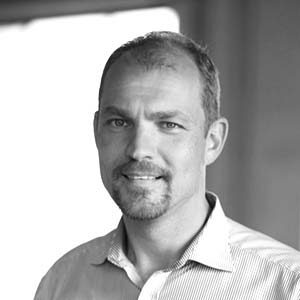
Thomas Hahner becomes LADE COO
Software entrepreneur drives development of e-mobility start-up
Thomas Hahner (48) will become Chief Operating Officer of e-mobility start-up LADE by December 1, 2020. Together with CEO Dennis Schulmeyer, he is responsible for the further development of corporate structures and the completion of investments. Initially, the cooperation is agreed to be carried out until summer 2021.
Thomas Hahner has been an IT entrepreneur since 25 years and also works as a management coach and mediator. In 1994 he co-founded the software company Drivve, which was sold to the US company LRS in 2018. In addition to his new role for LADE, the trained IT technician is also member of the executive board of Matterial, an online tool for knowledge management, and founder of Synthro eG as well as the co-working space M1 in Mainz.
Thomas Hahner: “In 2015 I bought my first BEV and the Lemnet website showed exactly one public charging station in Mainz – the one that Dennis Schulmeyer provided! Unfortunately, it’s still not that different today. Nevertheless, I firmly believe that technology helps us to make our world a better place. To do this, it has to be intuitive, simple and well thought-out. All of this comes together at LADE! The chance to help build this company is a great gift. Dennis’s passion is extremely captivating and the team he has developed over the past two years is highly motivated. “
Dennis Schulmeyer: “We are delighted to have Thomas Hahner on the team as COO! With LADE, we have set ourselves the big goal of ensuring comprehensive, functioning and sustainable charging infrastructure in Germany. With his decades of experience in setting up businesses, Thomas is helping us enormously. He thinks just as digitally as we do, advocates climate protection and, as a driver of BEV, knows the problems that we solve with our product. He would not get involved with something he is not convinced of. His commitment to LADE confirms that we are on the right track.”
About LADE
LADE GmbH wants to help accelerate the breakthrough of e-mobility in Germany. The company focuses on the development of scalable, user-friendly AC charging solution for BEV. The system offers numerous interfaces for partners in the e-mobility and energy sector and is suitable for use cases of any complexity, from charging at home or at work to the commercial sale of charging power. LADE combines innovative electronics with modern software, developing all essential components in-house. The company attaches particular importance to the optimised use of existing resources and renewable energy. The system also enables massive cost savings in installation, operation, billing and maintenance. LADE GmbH was founded in 2020 and is based in Mainz, Germany.
Downloads
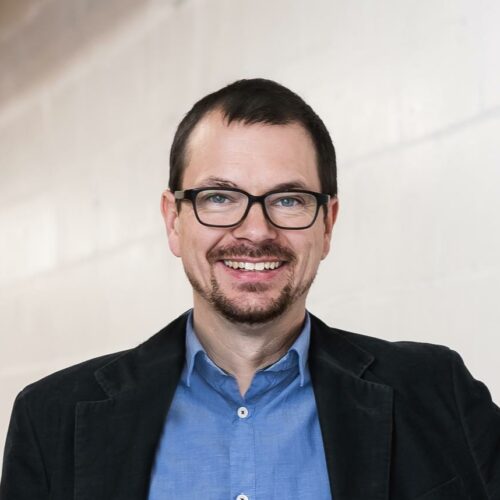
Founder and CEO Dennis Schulmeyer
Credit: Julia Teine
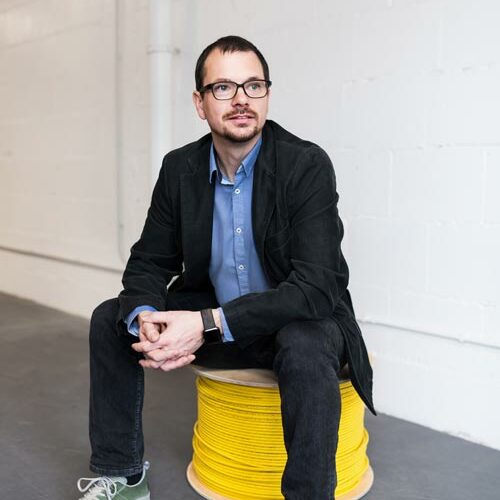
Founder and CEO Dennis Schulmeyer
Credit: Julia Teine
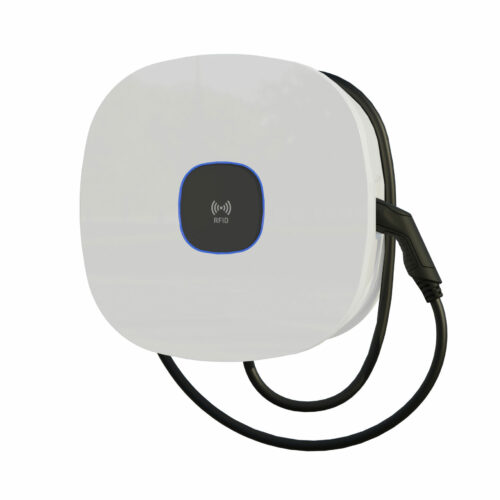
LADEbox
Credit: Barski Design
LADE logo
Credit: Digitalgenossen eG
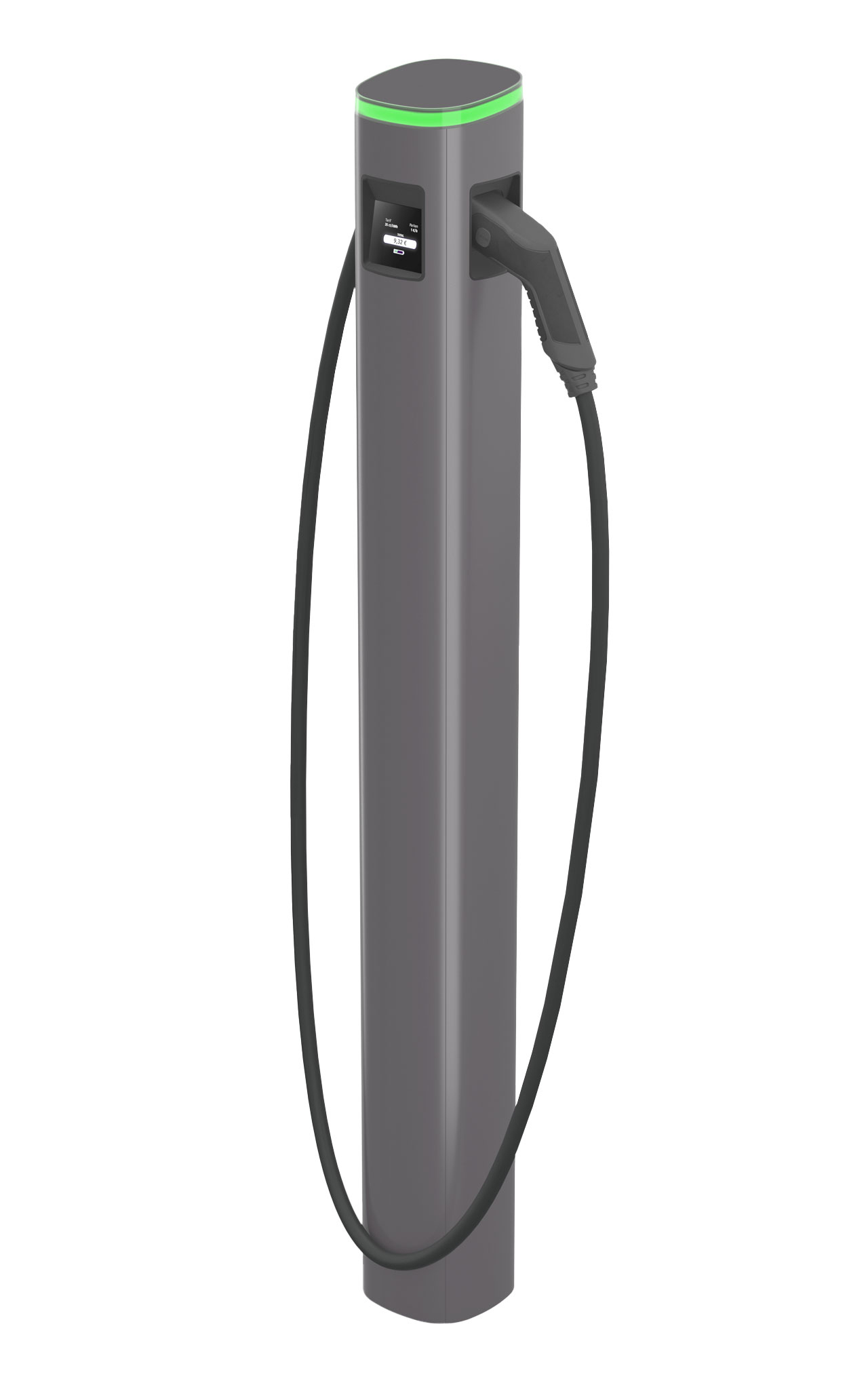
LADEsäule with cable
Credit: Stephan Sollmann
